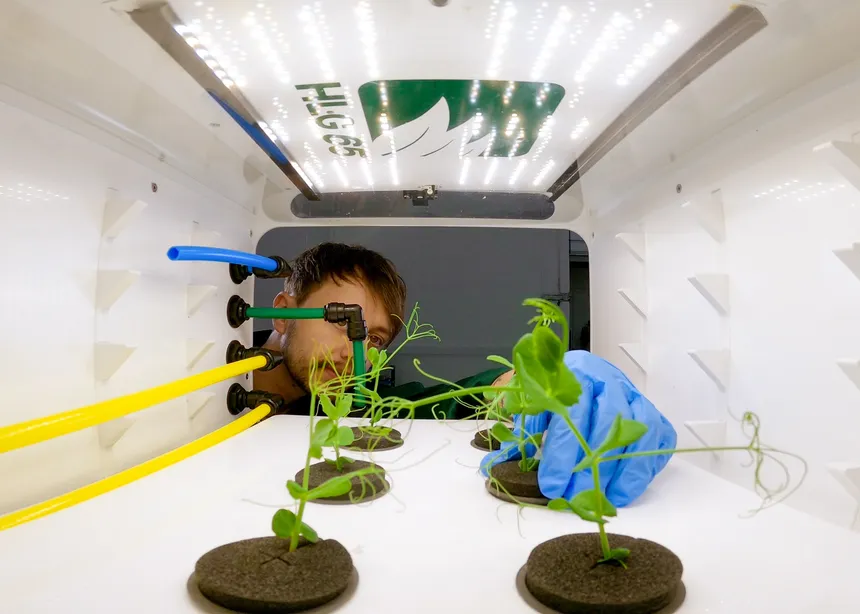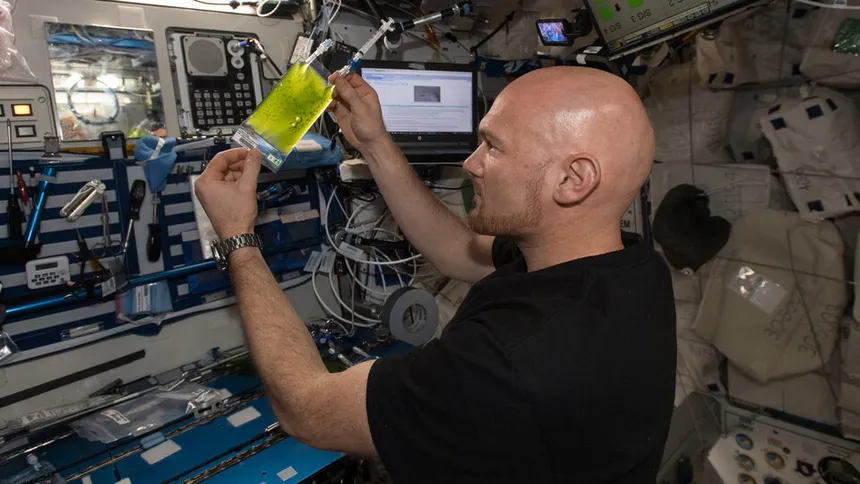NASA’s ambitious plans to sustain human life on deep-space missions have received a significant boost with the announcement of the Lunar Effects on Agricultural Flora (LEAF) experiment, scheduled to launch as part of the Artemis III crewed mission in 2026. The LEAF experiment, created by Colorado-based Space Lab Technologies, aims to investigate the effects of the lunar surface environment on space crops, focusing on plant photosynthesis, growth, and systemic stress responses in space radiation and partial gravity. The experiment will feature a plant growth chamber with an isolated atmosphere, designed to protect the plants inside from excessive lunar sunlight, radiation, and the vacuum of space. This chamber will allow scientists to observe plant growth and responses to stress in laboratory conditions, providing valuable insights into how to cultivate crops in space.
The LEAF experiment is a crucial step forward in NASA’s efforts to develop sustainable food sources for deep-space missions. Currently, spacecraft rely on pre-packaged food supplies, which can be expensive, heavy, and limited in variety. The importance of this research cannot be overstated, as future deep-space missions, such as those to Mars, will require a reliable source of food and water to sustain human life for extended periods. Traditional food supplies will be impractical and weighty, making it essential to develop alternative sources.
The LEAF experiment is a significant milestone in NASA’s efforts to achieve this goal, as it will provide valuable insights into how to cultivate crops in space and overcome the challenges of space radiation, partial gravity, and limited resources. The experiment will also demonstrate the agency’s commitment to developing sustainable food systems for deep-space missions. By understanding how plants grow and respond to their environment in space, NASA can develop more efficient and reliable food systems for future missions.

NASA Pioneers Sustainable Food Systems for Future Deep Space Missions
In addition to the LEAF experiment, NASA has also selected two other science experiments for the Artemis III mission. The Lunar Environment Monitoring Station (LEMS) will be a compact, autonomous seismometer suite designed to monitor the moon’s seismic environment, providing insights into the moon’s internal structure and composition. The Lunar Dielectric Analyzer (LDA) will measure the ability of lunar soil to propagate an electric field, which could aid the search for resources, such as ice, on the lunar surface.
The Artemis III mission is a critical step in NASA’s plans to return humans to the moon and establish a sustainable presence on the lunar surface. The LEAF experiment, along with the other selected experiments, will provide valuable insights into the lunar environment, paving the way for future deep-space missions to Mars and beyond. As NASA continues to push the boundaries of space exploration, the LEAF experiment serves as a vital stepping stone, demonstrating the agency’s commitment to developing sustainable food systems for deep-space missions.
The significance of this research cannot be overstated, as it has the potential to revolutionize the way we approach food production in space. With the LEAF experiment, NASA is taking a significant step towards achieving its goal of establishing a human presence on the lunar surface and beyond. The experiment is a testament to NASA’s dedication to pushing the boundaries of space exploration and developing the necessary technologies to support human life in space. By understanding how plants grow and respond to their environment in space, NASA can develop more efficient and reliable food systems for future missions, ultimately securing a sustainable future for human space exploration.








































